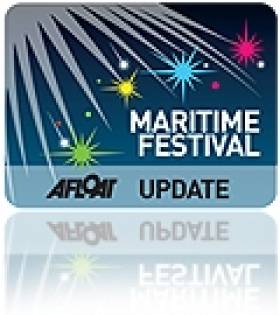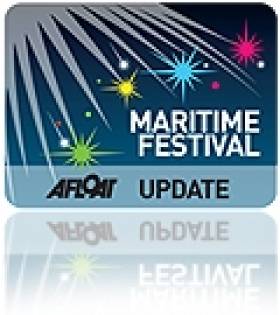Displaying items by tag: John Barry Wexford Maritime Festival
#MaritimeFestival – As previously reported on Afloat.ie the 2nd John Barry Maritime Festival (20-23 June) starts this week and is a celebration of the Wexford-born Commodore John Barry, father of the US Navy.
The four-day festival covers Wexford's rich maritime heritage and culture where all proceeds go towards the Wexford RNLI. Keeping to a nautical theme, a new Maritime Heritage & Cultural Trial takes place this Thursday, the opening day of the festival.
The walking trail takes in the narrow streets where there are more than 12 stops which includes 'A History of Wexford Ships' held in the Wexford Tourist Office and is free of charge. Or take in an Interactive Maritime Exhibition in the Wexford Library.
Also not to be missed... is the John Barry and JFK Photographic Exhibition in the Talbot Hotel, again this is free to the public. For details of the festival full programme visit: www.jbmf.ie/en/festival/festival-programme-2013
Wexford Festival to Celebrate Founder of US Navy
#WEXFORD MARITIME FESTIVAL - The John Barry Maritime Festival as previously reported is to take place on the weekend of 23-24 June where a packed festival programme outlines various activities and events, writes Jehan Ashmore.
As the festival is named after the Wexford-born Commodore John Barry, the father of the US Navy, there will be a contingent representing the navy who are to visit the festival. At the end of the festival one of the highlights will be the annual John Barry Memorial Ceremony. This is to be officiated by Major of Wexford Davy Hynes and attended by international dignitaries.
Throughout the festive weekend, the coastal town which is synonymous with its fleet of colourful dredging trawlers lining the quays will celebrate its rich maritime culture and heritage.
Wexford Harbour will be a visual array of boats and an air-sea rescue display by the Irish Coastguard (noting new SAR helicopter) and RNLI lifeboat and Naval Service. Also on hand will be the Irish Whale and Dolphin Group which will have a stand and Met Eireann will also be on the quay providing information and demonstrations to the public on marine safety.
Among the events to be staged is a rowing regatta of traditional sailing cots to modern fibre glass rowing boats, sea kayaking, canoeing, sailing and raft races on view from Wexford Quay marina.
In addition a 26,000 sq ft exhibition centre will house over 100 handcrafted model boats. There will be exhibitions about John Barry, the Titanic and an interactive media exhibition of maritime activities and local artists and photographers.
There will be entertainment in the form of traditional Irish music, dance groups, evening music on the Saturday and Wexford traders will be showcasing local produce on the quay. To consult the festival programme including fringe events visit www.johnbarrymaritimefestival.com






























































